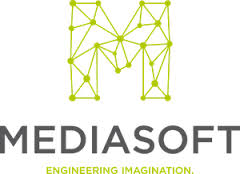Hands-On Play and Redesign
of a Leadership Game from Analog to Digital
Daniel Bliton, Jamie Catania, Aimee Norwood, and Trey Reyher
Booz Allen Hamilton, Inc.,
8283 Greensboro Drive, McLean, VA 22102, USA
Although serious games are an effective approach for learning higher-level cognitive skills, there is an ongoing challenge to design and verify instructional effectiveness without incurring significant coding expenses. This workshop explores the design and development considerations for analog (tangible) and digital games. Join us for a lively discussion, engage in hands-on play of a sample analog game, and wrap up with the development of a plan for moving the game from analog to digital. This two-hour workshop contains three main sections:
- The initial portion of the workshop includes discussion of: general game mechanics; reasons for ‘analog first’ prototyping prior to digital development; considerations for analog and digital games; factors that make any learning experience effective; and the process used to convert an analog game to a digital simulation for leadership development.
- During the second portion of the workshop, participants will play a quick board game (Leaders of Innovation) and then work in small groups to apply the concepts discussed previously by creating an initial design of a digital game.
-
The workshop will culminate with design pitches from all of the small groups. This is a really fun part of the experience – the sharing of some similar and some very different design approaches to the same challenge.
Designers and developers will leave this workshop with a reusable, but powerful, 5-step framework for designing/evaluating conversion efforts for training (instructor-led training to eLearning) and games (analog to digital) that you can apply to your own projects.
This workshop is intended for anyone designing, developing, or testing simulations and other serious games. It is intended for instructional designers, game designers, and project managers – using hands-on rapid design with paper (no computer coding). To gain the maximum benefit from this workshop, participants need only to have a passion and interest in using serious games to improve learning and performance. The workshop learning objectives are:
- Identify tenets of serious game design that apply to an ‘analog first’ approach
- Perform an analog to digital conversion, given an example game
- Apply tenets for ‘analog first’ design to your own situations and needs
- Apply a reusable 5-step framework for designing/evaluating conversion efforts
Workshop Facilitators
- Daniel Bliton is a learning strategist with Booz Allen Hamilton. He is a passionate learner and has been designing computer-based and web-based training solutions for over 24 years. Dan is a casual game designer and he has been deeply engaged with research on effective learning transfer. He is the creator of the documentary film “The Machinima Primer” which showcased the use of video game technologies for storytelling and the rapid production of movies. One of his favorite projects involved the creation of a web comic for the Smithsonian National Museum of Natural History.
- Jamie Catania is a learning experience designer with Booz Allen Hamilton. A lifelong advocate of problem-based learning, he has been designing and developing immersive, web-based training solutions for over five years across several industries, including K-12, higher education, high-tech, and government. Jamie’s current work emphasizes the application of user-centered design and rapid prototyping methodology in a context of learning. He partnered with the Leadership Development team at Booz Allen to redesign a successful leadership simulation to be delivered in a mobile, networked environment.
- Aimee Norwood is an immersive learning strategist with Booz Allen Hamilton’s Strategic Innovation Group. Having been engaged in learning and technology for over 24 years, she continues to partner with organizations to improve performance through holistic learning solutions. She is currently a Program Manager, creating virtual and face-to-face learning for both civil and defense health agencies focused on health information technology.
-
Trey Reyher is an immersive learning expert with Booz Allen Hamilton. Since 2007, he has managed the development of games, virtual environments, and novel user interfaces for research, educational, and entertainment objectives. He currently serves as the chair for the Washington, D.C. chapter of the International Game Developers Association. Before joining Booz Allen, he developed games and neurofeedback systems at the Massachusetts Institute of Technology.
Workshop Outline (120 minutes):
Part 1 – Introduction
1.1. Why You Should Care about Game-Based Learning
1.2 Agenda
1.3 Poll
Part 2 – Analog and Board Games
2.1 Analog Design as a Rapid Prototyping Strategy (i.e. low fidelity)
2.2 Board Game Design Process
2.3 Typical Board Game Characteristics
2.4 Tenets of Analog Design (e.g. comprehensive rules vs. flexibility)
2.5 Analog Design of Team Play
Part 3 – The Leadership Development Simulation as an Example
3.1 The Learning Goals and Challenges
3.2 Learners’ Expectations in Analog vs Digital Environments
3.2 Stepping Through Key Design Decisions
3.3 Evaluating the Potential Engagement of an Event using the DIMAC Model
Part 4 – Hands-on Play: The Leaders of Innovation Game as an Example
4.1 The Rules and Introduction
4.2 Playing the Game to Experience the Game Mechanics
4.3 Recognize the Winners – “Project Completion!!”
Part 5 – Hands-on Design
5.1 Small Group Redesign of the Game as a Digital Learning Intervention
5.2 Share and Discuss Each Group’s Approaches
Part 6 – Conclusion
6.1 Recommendations and References
6.2 How to Apply to Your Project
6.3 Final Thoughts





































